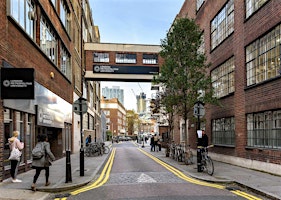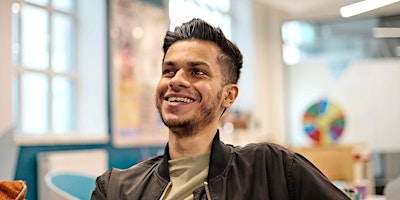Apply for this course
Please select when you would like to start:
If you're a UK applicant wanting to study full-time starting in September, you must apply via UCAS unless otherwise specified. If you're an international applicant wanting to study full-time, you can choose to apply via UCAS or directly to the University.
If you're applying for part-time study, you should apply directly to the University. If you require a Student visa, please be aware that you will not be able to study as a part-time student at undergraduate level.
Why study this course?
Our Illustration and Animation BA explores the rich heritage and history of hand-crafted illustration and animation while also exploring the vast possibilities of the new digital age of image making and animation.
Our students are encouraged to engage with the world around them through live briefs, socially and globally engaged studio projects and engagement with commercial practice. Throughout the course, students have frequent opportunities to establish links with the creative industries within and beyond illustration and animation so that they can understand the expectations of the industry and the opportunities available to them.
Study illustration and animation in a modern context
This course embraces ongoing developments in the way illustration is practised, no longer confined to the page, but inhabiting a dynamic, three-dimensional digital world
Become a versatile maker in both artistic and commercial work
A typical destination for graduates may be in the field of illustration, animation, advertising, film and television, publishing, immersive theatre, visual effects or art installation
Use a huge range of different mediums
A defining feature of the course is its focus on cross-disciplinary projects
Course modules
The modules listed below are for the academic year 2024/25 and represent the course modules at this time. Modules and module details (including, but not limited to, location and time) are subject to change over time.
Year* 1 modules
Year 2 modules
Year 3 modules
Critical and Contextual Studies 1 (Visual Communication)
This module currently runs:all year (September start) - Tuesday afternoon
(core, 30 credits)
The module aims to orient and critically engage you in the history and theory of your discipline, to examine its scope, conventions, and broader social and material context in culture and practice. The overarching purpose of this is to enable a greater ability to think through and develop your studio practice, enriching it with knowledge and ideas gained from study of the contexts in which it is framed. You will be encouraged to explore issues relevant to your own background and identity.
The module will help you to reflect on what you see and experience, and to find connections between different ideas that have shaped your discipline. In particular, the module investigates how ideas about practice in your field might be framed, for example in relation to history, the economy, cultures, society and the environment, through both theory and practice. You will be encouraged to question received ideas and to broaden your thinking and understanding of the global and previously marginalised contexts and histories of your discipline. The current and historic practice, impacts and implications of your discipline in relation to matters of sustainability, equity and accessibility will also be a focus of your studies.
The module will begin to introduce you to a range of academic skills needed to produce a graduate level study (a dissertation) in your final year. It will help you to develop and define your own interests, and to reflect on and take responsibility for the development of your own learning.
Read full detailsMessage and Meaning
This module currently runs:all year (September start) - Monday morning
all year (September start) - Monday
all year (September start) - Monday morning
all year (September start) - Monday morning
(core, 30 credits)
When you apply your carefully learned skills and knowledge of theory and principles, work takes on meaning. Communicating a message authentically with your audience and creating impact visually does not happen by accident. This module is where you learn to take control of that process.
Through a series of project briefs, you will learn to navigate the creative process from concept to delivery of finished outcomes. Project briefs will provoke you to tackle a problem or meet a need by applying technical skills and creative thinking.
You will learn the fundamental skills for interpreting and responding to a project brief, gaining an understanding the terminology of the project brief as well as the different component parts of a brief, with a particular focus on the requirements of an academic project brief set in the context of a university degree course, for example the assessment outcomes, bibliography and reference materials expected. This sets you on a sound course to be able to successfully navigate future briefs and academic assignments and to feel confident in eventually generating self-initiated briefs at higher levels of study.
The module introduces you to design research methods as the foundation of the project development process. Clear connections are made between theory (learnt in the Critical and Contextual Studies module CP4021), principles (learnt in module DN4002) industry knowledge (learnt in DN4001) and practice.
Through academically supported practical studio sessions, you will be guided through a range of discipline-specific, carefully structured project briefs developed to help you in bringing your unique personal responses to socially aware, current and stimulating provocations. You will learn to identify aims and objectives, learn techniques for idea generation, and gain sketchbook practice skills. You will be expected to develop an iterative design process, testing ideas, reflecting, identifying areas for improvement, articulating actions and adapting and improving your work.
During this module you will:
• Learn about the anatomy of a brief document, and how to confidently unpick and understand a set creative project brief;
• Make connections between your theory and practice, basing your work on original and creative ideas that you are able to clearly explain and present;
• Understand how to identify an audience for your work and communicate with the audience in an appropriate, authentic and effective way;
• Discover and practice strategies for applying your technical skills to create meaning in your work, with a focus on the skills and mediums relevant to your course discipline;
• Understand what it means to use an iterative process in your creative work and the value of testing, reflecting and problem solving as part of your process.
Read full detailsSkills and Principles
This module currently runs:all year (September start) - Friday afternoon
(core, 30 credits)
This module enables emerging graphic designers, illustrators and animators to explore and gain fundamental working knowledge of the core skills and principles of their subject. You will take part in introductions to craft and digital workshops and learn the processes of making needed for visual communication.
Gaining an understanding of core skills and tools is achieved through the framework of design principles, enabling you to make important connections between the process of making and the process of designing.
You will learn how skills and tools can help you to implement decisions about colour, form, proportion, movement, repetition, hierarchy and negative space to create convincing visual outcomes.
The module runs alongside the project module DN4004 ‘Message and Meaning’, and equips you with the necessary skills to successfully and confidently respond to creative project briefs. You will engage in workshops that introduce a basic working knowledge of software and digital tools, then to extend that learning by applying it to short briefs and challenges.
In this module, you will be introduced to a range of physical and analogue making tools and equipment, including inductions in facilities such as photography, printmaking, and animation equipment and workshops, as well as studio-based processes such as drawing, mark-making, book-binding, publication-making, model-making and sketchbook skills.
The skills learned in this module provide and essential foundation for independent discipline specific learning in levels 5 and 6.
The module will include:
• Use of essential digital tools and software appropriate to your course and discipline at a basic level;
• Working safely and effectively in a range of creative workshop settings and using physical and analogue making tools and techniques;
• Key knowledge of design principles and understanding how to apply that in responding to creative briefs and set tasks;
• Documenting and presenting your learning in a clear and considered way;
• Reflecting upon your learning and its effective application in practice;
• Terminology relating to key tools, processes and principles, and the ability to contextualise this knowledge in relation to contemporary discipline specific practice.
Read full detailsWork Ready Level 4
This module currently runs:all year (September start) - Friday morning
(core, 30 credits)
Preparation for your future as a professional practitioner starts here. The journey from level 4 to graduation and success in employment is supported from your first week on the course. This work-related learning module is the first of three modules preparing you for employment and is followed at level 5 with Work Ready 2; and level 6 with Work Ready 3.
The course as a whole encourages you to consider yourself as active and valuable players in your industry – as students you are the future of your chosen professional sector. This module is about helping you to understand and feel comfortable and confident in that world and to think about your future as a responsible and well-informed representative of your discipline.
During this module you will:
• Discover your motivation and your individual voice as a creative practitioner, and begin the process of learning to articulate your ambitions and achievements;
• Situate your creative practice in the wider context of your discipline and the working world;
• Understand your responsibilities as a creative practitioner, both to your colleagues and clients, but also to the wider world;
• Get to know the vocabulary and environments of the working world specific to your creative discipline and how it connects to professional practices and job roles;
• Learn how to connect to and feel an active part of the creative industries.
The module creates opportunities for you to understand, encounter and connect with the world of professional practitioners through talks, visits and other touchpoints such as industry competitions, events, and print, digital and social media. You will investigate the work of relevant contemporary global practitioners in visual communication, learn how to analyse and reflect on their work and connect it to your own professional goals and ways of working. You are encouraged to become a self-aware practitioner, to think about the ethical implications of your work and your responsibility as a designer playing an active role in the world.
You will be introduced to the terminology and professional formats required for professional presentation, self-promotion and working practices, for example, through the professional portfolio, CV, website, showreel, and pitch deck. You will be able to access advice on identifying and cultivating transferable skills that are required in the working world, such as teamworking tools and strategies, time-management, communication skills, collaborative working practices.
Throughout the module, knowledge, understanding and skills are supported by an active learning approach and through reflective practice. You will actively connect work-related learning to project briefs in other modules and begin to synthesise the real-world situations in this module with your own practice.
Read full detailsCritical and Contextual Studies 2 (Visual Communication)
This module currently runs:all year (September start) - Thursday afternoon
(core, 30 credits)
Critical and Contextual Studies 2 continues to orient and critically engage you in the history and theory of your discipline, its extent and conventions, and its broader social and material context in culture and contemporary practice. It builds on studies undertaken in Level 4 and prepares you as independent thinkers to be capable of selecting an appropriate topic and producing a sustained piece of independent study in the form of a dissertation in Level 6.
The module continues the process of constructing and questioning knowledge about your discipline, its history, contexts, and professional and ethical dimensions. It introduces and rehearses the analytical and discursive skills you need to become critically aware of the authorities, objects and practices in your field and able to express and debate the issues attaching to them. You will consider the roles and responsibilities of professionals in your field and examine the ethical questions relevant to the discipline, becoming conversant with current debates in the subject. You will consider the priorities and points of view of the industry, the client, the designer, the consumer or user, the critic and wider society.
You are encouraged to think critically and creatively and to take responsibility for the development of your own learning. The module recognises that you are an active contributor to the process of learning: what you as a student bring to the construction and evaluation of knowledge matters – and how effectively you construct and evaluate that knowledge depends on how well you understand the field of your discipline as outlined above.
Critical and Contextual Studies for second year students is structured in order to foster confidence, through applying analytical skills to a growing body of knowledge and expressing this through debate, discussion and public presentation. Dialogue and exchange between students and tutors takes place in informal in-class settings and ensures that student experience and cultural and social capital is expressed and valued.Critical and Contextual Studies 2 continues to orient and critically engage you in the history and theory of your discipline, its extent and conventions, and its broader social and material context in culture and contemporary practice. It builds on studies undertaken in Level 4 and prepares you as independent thinkers to be capable of selecting an appropriate topic and producing a sustained piece of independent study in the form of a dissertation in Level 6.
The module continues the process of constructing and questioning knowledge about your discipline, its history, contexts, and professional and ethical dimensions. It introduces and rehearses the analytical and discursive skills you need to become critically aware of the authorities, objects and practices in your field and able to express and debate the issues attaching to them. You will consider the roles and responsibilities of professionals in your field and examine the ethical questions relevant to the discipline, becoming conversant with current debates in the subject. You will consider the priorities and points of view of the industry, the client, the designer, the consumer or user, the critic and wider society.
You are encouraged to think critically and creatively and to take responsibility for the development of your own learning. The module recognises that you are an active contributor to the process of learning: what you as a student bring to the construction and evaluation of knowledge matters – and how effectively you construct and evaluate that knowledge depends on how well you understand the field of your discipline as outlined above.
Critical and Contextual Studies for second year students is structured in order to foster confidence, through applying analytical skills to a growing body of knowledge and expressing this through debate, discussion and public presentation. Dialogue and exchange between students and tutors takes place in informal in-class settings and ensures that student experience and cultural and social capital is expressed and valued.
Read full detailsSkills and Enquiry
This module currently runs:all year (September start) - Thursday morning
(core, 30 credits)
This module follows on from the Level 4 skills module, and supports and equips you to develop your understanding and use of processes to a more sophisticated level. Whether you are working with digital tools or analogue processes, having a deep understanding of both puts you in the best position to realise your creative vision as a graphic designer, illustrator and animator.
In this module you will build on your prior learning in the basics of relevant software and digital tools, as well as practical processes such as printmaking, photography and stop motion animation. At level 5 you begin to innovate and push boundaries, and to test where these tools and processes can take you creatively. This learning can then be applied to your creative design projects in other modules.
The module guides you in how to establish a sound creative process, using techniques of idea generation, testing and iteration and thinking through making. You will be able to create connections between analogue and digital processes, to understand that the foundations and vocabulary of software are rooted in analogue forerunners.
Through this module you will be equipped to experiment and take risks with processes and understand the value of experimenting with tools and materials as a starting point for idea generation, as well as using them to execute outcomes to a highly finished professional level.
During this module you will:
• confidently and safely learn and work in some of our specialist workshop settings independently as well as with academic or technical support;
• build on basic making skills and processes to begin innovating and adapting tools and technology;
• assimilate skills learning with wider creative practice, exercising initiative and testing boundaries;
• begin to develop a critical and reflective approach to the use and application of making skills, tools and processes.
Voice and Vision
This module currently runs:all year (September start) - Tuesday
all year (September start) - Tuesday morning
(core, 30 credits)
This module gives you the opportunity to bring your individual perspective to the purposes that visual communication is used for in the world. You will be supported to bring together your skills, ideas and unique creative perspective in a professional and impactful way and to carefully consider your position and role as visual communicators in the world, developing a sense of your responsibilities as graphic designers, illustrators and animators. The purpose of the module is to equip you with practical experience and knowledge of how to successfully respond innovatively and ethically to creative project briefs, to connect a message to an audience in an effective way.
You will work in a studio setting, working collaboratively and individually, supported by tutors, to respond to a range of discipline and level-appropriate briefs, some of which will include live briefs and collaborations with external partners, gaining experience in how to conceptualise, plan and produce design outcomes that challenge and innovate in the areas of graphic design, illustration and animation. You will assimilate learning from other modules, working independently to deploy your understanding of when and how to apply the appropriate skills and tools to give shape to and communicate a creative vision. You will pursue reflective practice, applying what you have learned from analysing examples in order to support your design decisions, articulating ideas effectively and with reference to wider global creative practice in graphic design, illustration and animation.
The module also prepares you for independent learning and working, which is required at the next level of study (Level 6), ensuring that you can assimilate creative and critical thinking with practical and technical skills, and project management strategy.
Typically the module will cover:
• understanding the commercial environment, context and potential purposes and applications of design practice;
• developing a distinct personal voice and approach to your discipline, acquiring confident design research skills, analysing precedents and using case studies;
• issues such as the use and reception of language, methods of structuring information, both text and image, appropriate tone of voice, hierarchy, sequence and materials and processes;
• working across various formats and media such as publication and poster design, moving image formats, exhibition design, information design, recognising and debating the theoretical and ethical context;
• conceptualising, planning and producing design outcomes that exploit the breadth of visual communication for a defined purpose, exploring and extending practice, creatively and technically.
Read full detailsWork Ready Level 5
This module currently runs:all year (September start) - Friday afternoon
(core, 30 credits)
At the same time as you deepen your understanding of your creative process and enhance your skills in other studio practice modules, Work Ready Level 5 continues the journey of getting you prepared for employment when you graduate. With ‘professional practice’ as its focus, this module prepares you for the profession you will graduate into, ready to be an active part of the industry.
The module is intended to enable graphic designers, illustrators and animators to experience and understand real-world working practices of their respective creative sectors. The programme of talks, visits, workshops, competitions and projects that reflect real-world situations enables the consolidation of disciplinary professional and creative skills, alongside a growing understanding of entrepreneurialism and collaborative approaches to working. During this module you will have the opportunity to discover and interrogate the various professional jobs and roles available to you upon graduation, to start defining the type of creative role you would like to achieve, and to shape your practice and portfolio to work towards those goals. You will discover what it is like to work as a freelancer, to set up a creative business, quote for and cost your work, manage your time effectively and to navigate tax and legal matters relating to your discipline.
The emphasis is on boosting your employability attributes and demystifying industry practices, media and terminology to ensure that you feel confident about your path into work from graduation and beyond. Working on a range of projects and tasks, you will gain transferable skills such as networking, teamworking, pitching, and giving and receiving professional feedback. The module supports those teamworking and collaboration skills through practical projects applied to real-world problems and opportunities. You will have the opportunity to participate in industry-specific events, visits and exhibitions and to use your reflection on this experience to develop your own ‘brand’ or approach to self-promotion. You will begin to compile and design a professional portfolio, showreel (where appropriate) and CV with the aim of obtaining a work placement in Level 6 and employment upon graduation.
Read full detailsCritical and Contextual Studies 3: Dissertation (Visual Communication)
This module currently runs:autumn semester - Wednesday morning
autumn semester - Wednesday afternoon
(core, 30 credits)
Critical and Contextual Studies (CCS) in Level 6 offers you an opportunity to understand and explore the historical, social, cultural and economic factors which influence, and provide a context for, the development of architecture, art and design practice. Building on critical and academic skills gained during two years of previous study, the module encourages you to develop an awareness of issues around which there is some debate, uncertainty or contest. Based on this awareness, you will develop a set of research questions which constitute the topic of your study. This topic can be theoretical, historical, or technical and you may, with guidance, decide to engage with an area of scholarly interest outside the territory of your degree course.
You will develop your topic and respond to your research questions in the form of an extended critical study or Dissertation (6,000–7,000 words). Through this study you demonstrate that you can thoroughly research a topic, use appropriate methods of investigation, and work in a methodical and organised way to develop a coherent argument or line of thought. Teaching and Learning on the module is designed to support you in this process through a combination of tutorials and one to one supervision; as well as a series of formative and summative assessments which prepare you for the final submission.
The final form and presentation of your Dissertation can reflect a broad range of approaches to research and writing. It may include visual materials or other non-written forms of presentation as long they support your enquiry and comprise an integral part of the whole.
The final form and presentation of your Dissertation can reflect a broad range of approaches to research and writing. It may include visual materials or other non-written forms of presentation as long they support your enquiry and comprise an integral part of the whole. By prior approval at the start of the module, your research can be part practice-based, and include primary research and fieldwork.
By virtue of the sustained, independent nature of the learning and substantial final output, the dissertation is also intended to prepare you for possible postgraduate study.
Read full detailsMajor Project: Illustration and Animation
This module currently runs:all year (September start) - Thursday morning
(core, 30 credits)
Over the course of your level 6 studies you will reach a point as a practitioner when your practice - and eventually your portfolio - is defined by your own interests, discipline focus and professional ambitions. In the Major Project module you will assimilate your years of prior learning and apply it to a significant body of work. You will define your individual creative identity and situate your practice in the wider context of the professional illustration and/ or animation sector.
In this module you will define, develop, test, iterate and execute an ambitious and significant project of highly-resolved discipline-specific work. Encompassing project development from problem finding, through idea and concept generation to the application of your practical skills for realisation and presentation in professionally recognised formats, you will use and record your independent project planning and management skills in preparation for your career launch.
A negotiated and approved proposal will confirm your individual project. Using creative exploration and experimentation you will generate, develop, research, conceptualise, visualise, test and model your proposals using material investigation in digital and analogue processes.
Feedback from tutors, visiting professionals and practitioners as well as peers will help you to ensure that your proposal meets a valid need, reaches a professionally-recognised quality standard and achieves the purpose intended. With an emphasis on individual authorship, the module requires that you critique and reflect upon your work in progress and understand its position in the creative sector. The module emphasises self-direction and personal focus whilst acknowledging external and professional trends, expectations and constraints.
During this module you will:
• devise and research a subject-specific project proposal;
• defend the project proposal using your research as evidence;
• exercise project planning, management, research and development skills in an academic and professional context;
• exercise decision making and problem solving showing that you have understood and managed complex and ambitious tasks;
• work independently, self-reflectively and with concern for the ethical issues and principles attached to your project;
• show understanding of your particular strengths, interests and position in the field, and your potential for further development;
• achieve outcomes of a professional standard of realisation and presentation.
Read full detailsSkills and Innovation
This module currently runs:all year (September start) - Thursday afternoon
(core, 30 credits)
In this module you will work with a high degree of independence in the selection and application of appropriate tools, materials and processes for visual communication.
There is an emphasis on innovation and experimentation, specifically your individual ambitions to test boundaries and take creative risks to make advances in exploring and applying discipline-specific tools. ‘Tools’ might be interpreted as physical implements for drawing, printmaking, publication-making, stop-motion animation or other, but also digital tools in the context of software workspaces and use of digital apps.
How can you adapt and work in an innovative way and on a granular level with the ‘tools of your trade’ as an illustrator, animator or graphic designer? How can your deep understanding of the qualities and limitations of materials, and possibilities offered by processes, aid your problem-solving and decision-making as a graphic designer, illustrator and animator? These are questions you will be supported to formulate, explore and answer in relation to your own practice as you continue to investigate the possibilities of our making workshops and digital facilities.
You will gain insights from module tutors and visiting practitioners about how experimentation forms part of the creative research and development process; then reflect on this and establish strategies for building research and development into your practice. This practice will directly feed into developing and finalising work for the Major Project module.
Thinking through making and visual experimentation as a research method is encouraged and supported. You will evidence your work in analogue and digital sketchbooks and through a portfolio of experimental and developmental work, along with evidence of reflection and self-critique.
During this module you will:
• explore the purpose and methods of research and development in the context of the creative industries and your own practice.
• work with an increasing level of innovation and experimentation with tools, materials and process;
• reflect on and critique your work in order to invent, test, iterate and refine visual approaches;
• develop further confidence in using experimentation and creative risk-taking with materials and processes as part of thinking through making and as a research method for visual communication;
• take the initiative in selecting the materials and processes that are relevant to your discipline, practice, project aims and professional ambitions; and devise an individual approach to using those materials and processes.
Read full detailsWork Ready Level 6
This module currently runs:spring semester - Friday
(core, 30 credits)
This module prepares you for entry to the workplace, self-employment or progression to higher study through experience of professional portfolio development and presentation, experience of working in industry contexts, and of related promotional and self-promotional activities. It helps you to assess not only your position within the creative design sector but also to define your individual creative strengths and potential, and to confidently identify your route to future success. You will build on existing professional practice skills, working at a level equivalent to industry standards in teamworking, presenting, pitching and creative responses to briefs and competitions.
Through practice, you will establish a sound process for research, design development and production using recognised sector-specific strategy and practice. A program of lectures, workshops, seminars and assignments, will prompt the investigation and analysis of the forms, properties and qualities of a wide range of professional practice fundamentals, for example, digital portfolios, self-branding and promotion, event design and management, costing, copyright laws and offline and online content creation.
You will be supported to develop networking skills, through specially arranged workshops and talks with industry professionals and successful graduates from the course, as well as outside the University at industry events. You will be shown how to reach out to potential employers for work placements, internships and job opportunities.
You will experience work-related learning through live exhibition, competition or simulated consultancy or work placement. You will refine a range of transferable skills in communication, management, research and analysis and will be encouraged to reflect and report on the work-relevant skills that you have developed throughout. These skills are advantageous for all graduates and include (for example): action planning, contribution to professional meetings, entrepreneurship, acting as a consultant, goal setting, negotiating, networking, project management, self-appraisal and team working. Activities undertaken in this module will help to prepare you for the launch of your individual design practice during the final degree show and subsequent employment applications.
During this module you will:
• research, analyse, and adapt your practice for sector-specific professional conventions in relation to real-world employment, exhibition or competitive situations;
• develop professional entrepreneurial processes for the generation, development, testing and pitching of concepts in response to specified clients and audiences;
• plan and manage self-promotion activities and exhibition, client or employer project pitching from inception to delivery, within commercial timeframes, developing strategies to maximise your chances of success;
• employ professional standards in the manipulation of appropriate media for the communication and presentation of your design identity and specific concepts;
• review competitor practices in relation to employment preparation or freelance self-promotion and build enterprise strategies for consultancy practice.


-(1).jpg)
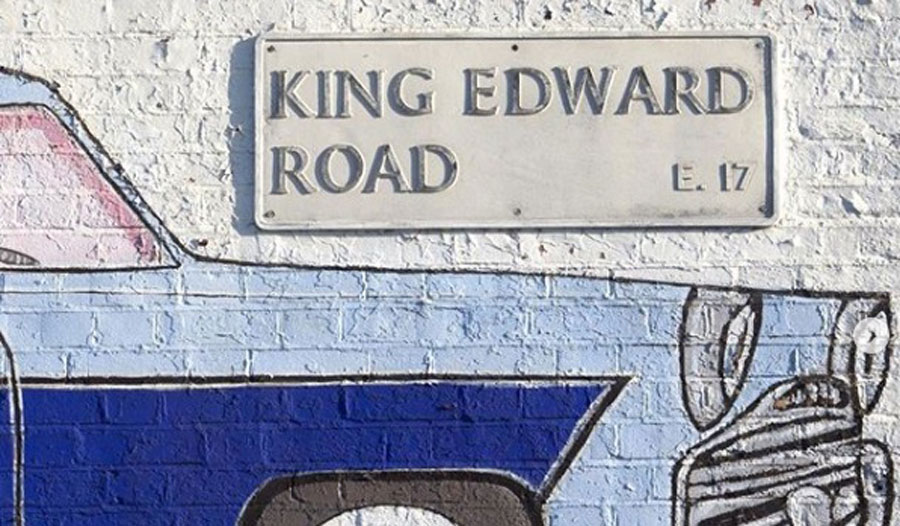
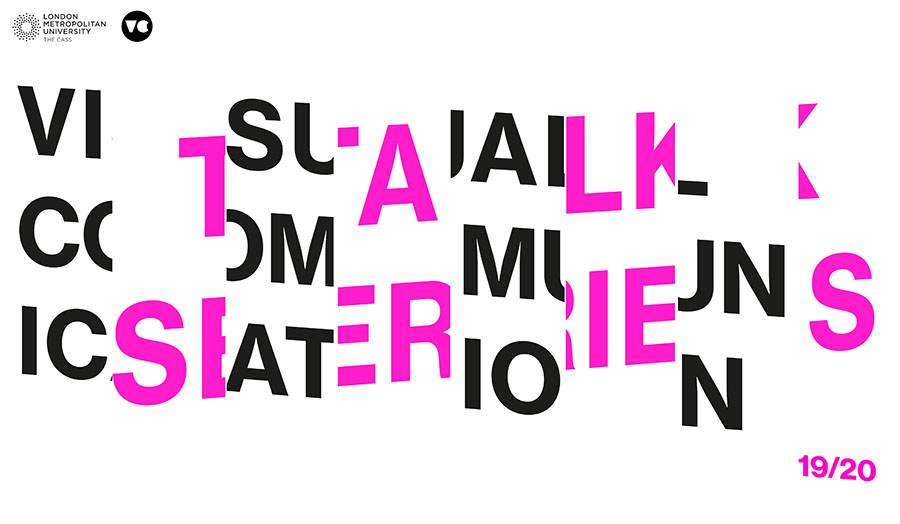
.jpg)
.jpg)

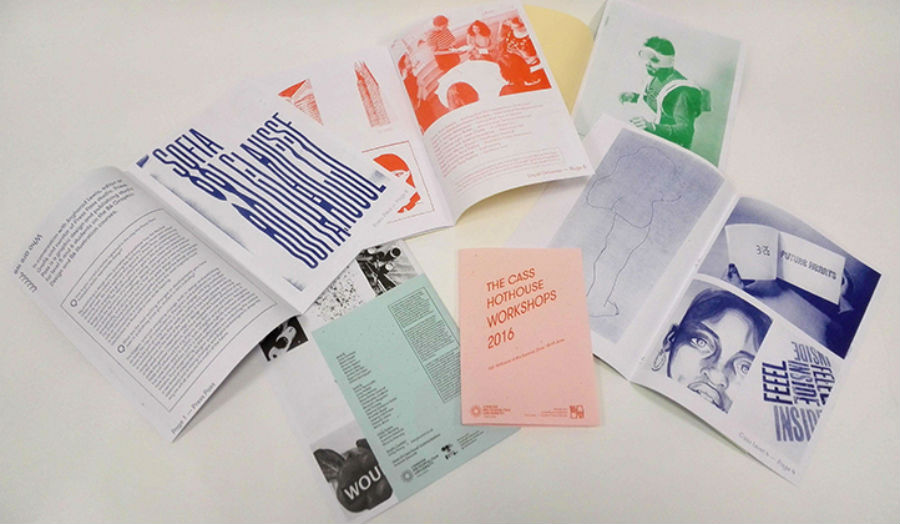
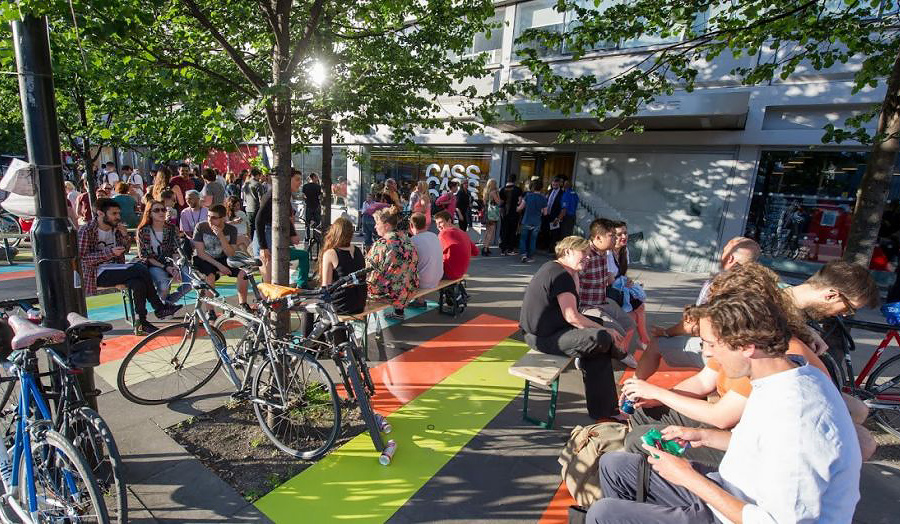
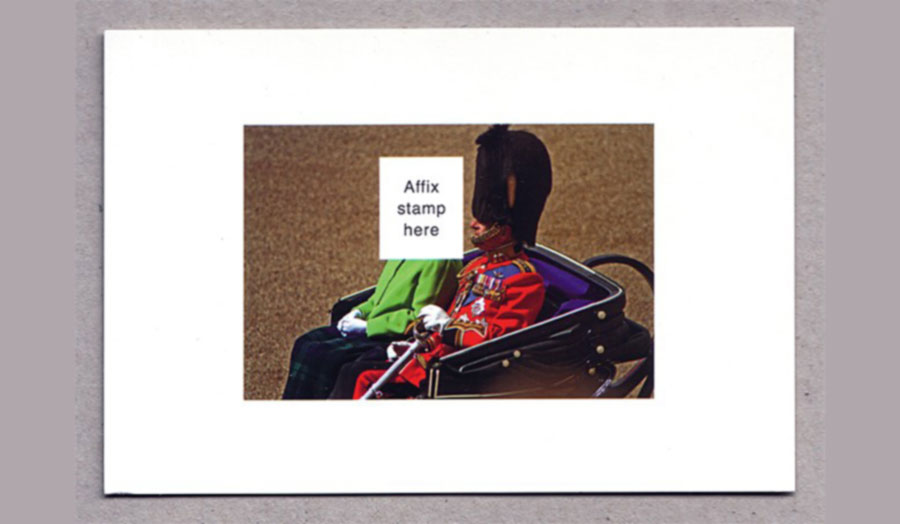
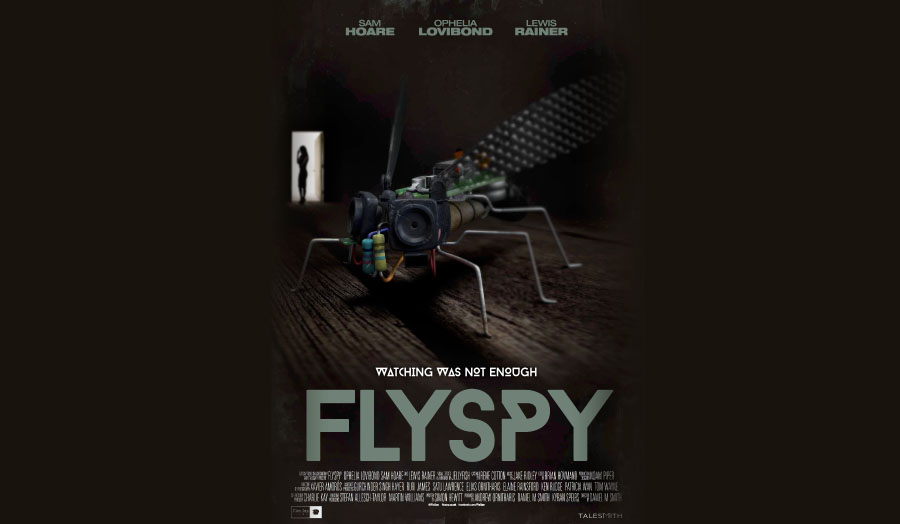
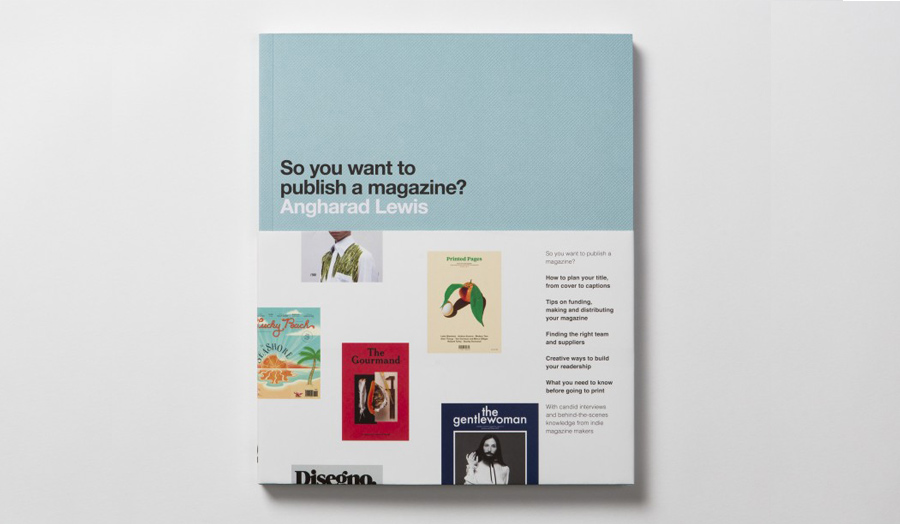
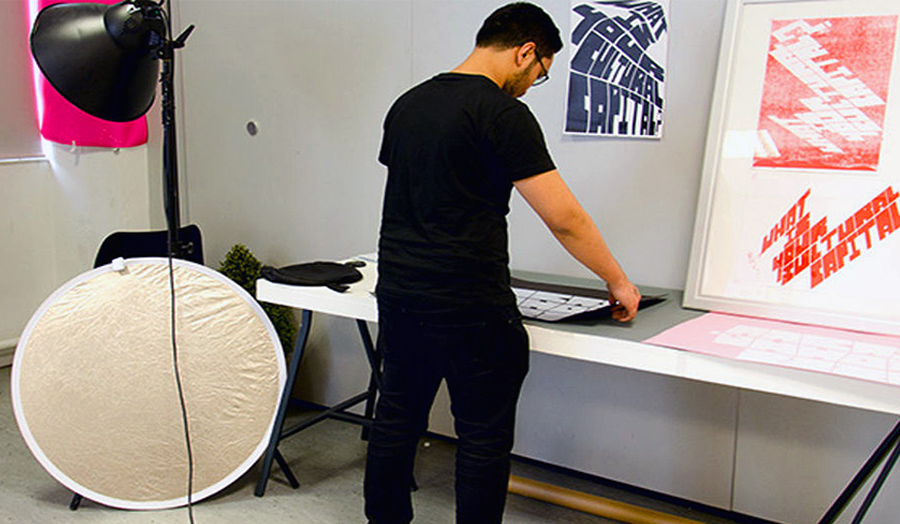

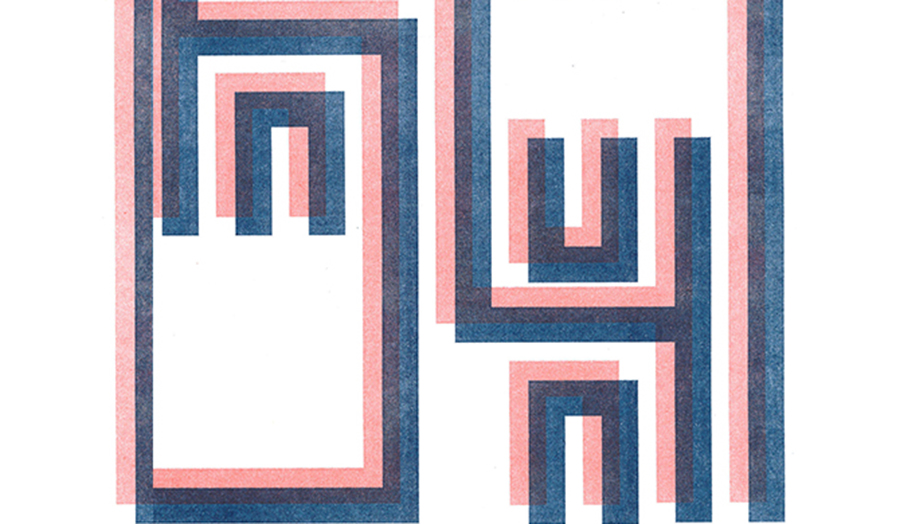
.jpg)
.jpg)
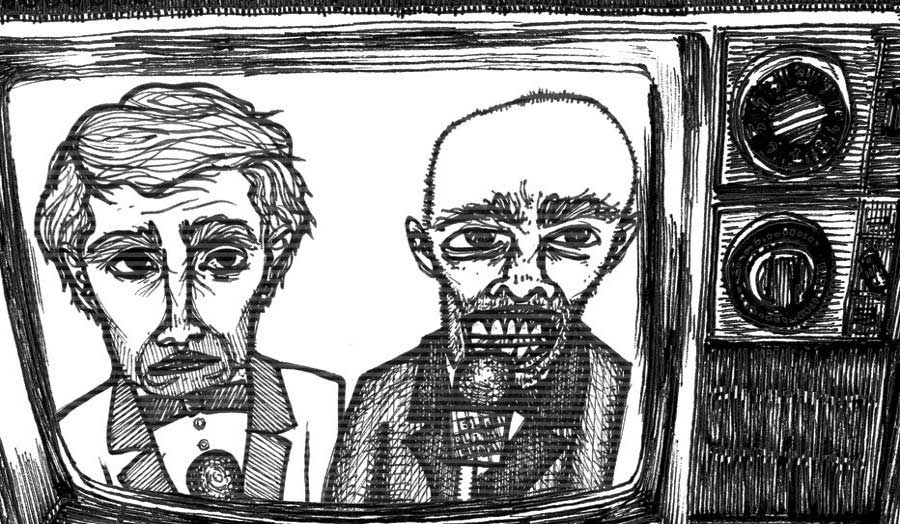
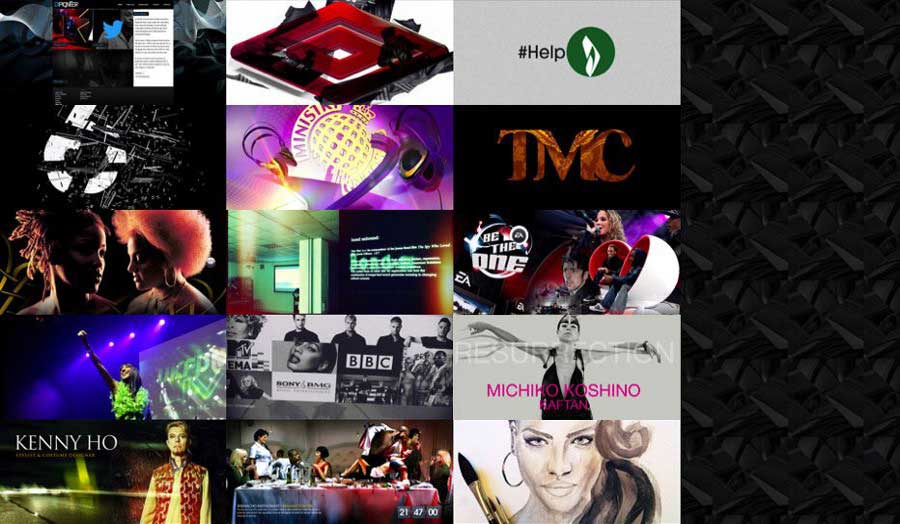
-(1).jpg)
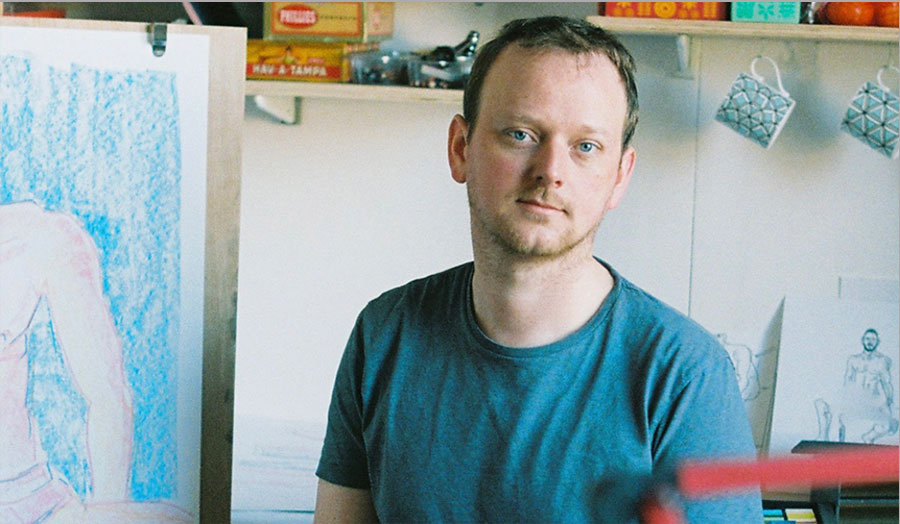
.jpg)
.jpg)
